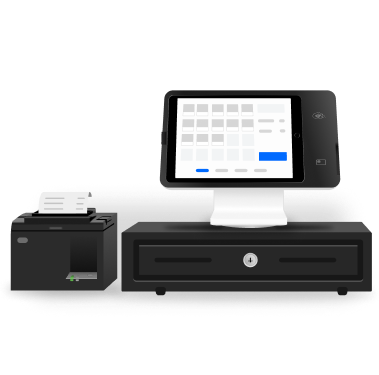Please update your browser.
Download the latest version of a supported browser below to get the most out of this website:
General
Afterpay Merchant Terms of Service
Last updated: July 1, 2023
By enabling and offering the Afterpay Service to your customers, you are agreeing to be bound by these terms and conditions (the “Afterpay Merchant Terms of Service”). By using Afterpay, you also agree to be bound by the General Terms of Service and Payment Terms, and their terms are hereby incorporated by reference (together with these terms, the “Agreement”). As used in these terms, “we”, “us” and Square mean the Block entity defined in the General Terms of Service and Payment Terms.
Afterpay is a payment method that allows you to offer your customers the ability to pay for goods and services in installments (the “Afterpay Service”). Square, as your payment service provider, is providing this service to you subject to these terms and the Afterpay Scheme Rules (“Scheme Rules”) provided in Schedule A below.
We reserve the right to update these terms by posting updates and changes to our website and upon reasonable notice to you. Please review these terms from time to time for updates and changes that may impact you.
1. Use of Afterpay and Acceptance of the Scheme Rules
By accepting and agreeing to be bound by these terms, you are also accepting and agreeing to be bound by the Scheme Rules provided in Schedule A below. Any violation of the Scheme Rules may lead us to suspend, deactivate, or terminate your Square Account or your access to the Afterpay Service.
2. Access to the Afterpay Service
Pursuant to the Scheme Rules, APM Provider (as defined in the Scheme Rules) reserves the right to deny you access to the Afterpay Service.
In order to use the Afterpay Service, Square will provide to APM Provider certain information about you on your behalf, including, but not limited to, information that identifies you and your business. This may include your name, address, email, tax identification number and other identifying information that is necessary to provide you with the Afterpay Service.
3. Afterpay Service Pricing and Fees
Pricing for the Afterpay Service is set forth in your Square Online Dashboard or Square Dashboard, depending on the Square product for which the Afterpay Service is enabled (collectively, the “Square Dashboard”).
In addition to our rights set forth in Section 4 of the Payment Terms, we reserve the right to charge additional fees or otherwise change the fees for the Afterpay Service at any time upon reasonable notice to you.
In addition to the fees related to the Afterpay Service, you are responsible for any penalties or fines imposed on you or on us by any bank, payment network, financial institution or other financial intermediary resulting from the use of the Afterpay Service in a manner that is not expressly permitted by this Agreement or by such financial intermediary’s rules and regulations. Furthermore, in accordance with the Payment Terms, you are responsible for any fees and amounts owed to us due to any Chargebacks, disputes or other settlement issues in connection with your use of the Afterpay Service.
4. Compliance with Relevant Law
The Afterpay Service contemplated by these terms are made available to you solely for lawful purposes and use. You will comply with and and will ensure that your subcontractors, agents and personnel comply with all Relevant Law (as defined in the Scheme Rules) when using the Afterpay Service.
5. Term and Disabling Afterpay Services
This Agreement is effective upon the date the Afterpay Service is enabled on your Square Account, and continues so long as you use the Afterpay Service. You can enable and disable your use of the Afterpay Service using your Square Dashboard.
6. Miscellaneous and other Legal Terms
All legal terms incorporated by reference from the General Terms of Service and Payment Terms of Service, including, but not limited to Indemnity, Limitations of Liability and Damages, Notice, Representation and Warranties, Assignment and Governing Law are deemed to apply to these terms.
Schedule A: Afterpay Merchant Scheme Rules
The below stated rules and undertakings apply to a Merchant using the Services (each as defined below). The Scheme Rules are to be complied with in accordance with the terms of the Afterpay Merchant Terms of Service, the General Terms of Service and Payment Terms between Merchant and Block, Inc. or another Square Affiliate (“Square”) for the use of the Afterpay Payment Method.
BACKGROUND
The Afterpay group (“APM Provider”) provides the Payment Method and related marketing and promotional services to Merchants in the relevant Territories selling Goods online, in-Store(s), and through other agreed sales channels, as approved in writing from time to time. The Payment Method, at APM Provider’s sole discretion, may be provided by Afterpay US Services, LLC or such other of its Affiliates as the APM Provider may determine. For clarity, this may be, but is not limited to, to comply with legal or regulatory compliance requirements in a relevant jurisdiction and/or for commercial purposes.
However, as an alternative to a direct integration and direct contractual relationship between APM Provider and Merchant for the provision of the Payment Method, the Payment Method is now offered through PSP to Merchants who qualify with a direct integration through the PSP Platform provided they comply with these Scheme Rules (“Services”). Related marketing and promotional services to Merchants arising out of or related to the Services shall be managed in accordance with clause 4 of these Scheme Rules.
Accordingly, Merchant shall adhere and comply to the following terms and conditions under the Scheme Rules for the Services. The Scheme Rules may be updated from time to time. Where the Scheme Rules are revised, PSP shall make such updated rules available to Merchants for review.
GENERAL RULES FOR ALL MERCHANTS USING THE SERVICES
1. DEFINITIONS
For the purposes of the Scheme Rules, unless stated otherwise, the following words shall have the following meanings.
“Affiliates” means a company which controls, is controlled by or is under common control with PSP or APM Provider under these Scheme Rules.
“Business Day” shall mean a day other than a Saturday, Sunday or public holiday in the Territory.
“Chargeback” shall mean a claim of the Customer’s issuing bank for a return of a Transaction amount.
“Confidential Information” shall mean the content of the Scheme Rules and any information of technical, commercial or other nature that has been identified as confidential or that the disclosing party may reasonably wish to keep confidential.
“Customer(s)” shall mean a consumer that has made a purchase of Goods from the Merchant, or from a third party but handled by the Merchant using the Services.
"Data Protection Legislation" means any applicable laws and regulations in the relevant Territory for the Services relating to the use or processing of personal data including but not limited to (i) the General Data Protection Regulation EU 2016/679 (“GDPR”), (ii) any laws or regulations ratifying, implementing, adopting, supplementing or replacing the GDPR including in the UK the Data Protection Act 2018 (“DPA”) and to the extent in force the UK GDPR as defined in The Data Protection, Privacy and Electronic Communications (Amendments etc) (EU Exit) Regulations 2019 (“UK GDPR”); (iii) the Regulation of Investigatory Powers Act 2000 (UK); (iv) the Telecommunications (Lawful Business Practice (Interception of Communications) Regulations 2000 (UK); (v) any laws and regulations implementing or made pursuant to EU Directive 2002/58/EC (as amended by 2009/136/EC) including in the UK the Privacy and Electronic Communications (EC Directive) Regulations 2003; (vi) the California Consumer Privacy Act of 2018 (the “CCPA”); (vii) the Gramm-Leach Bliley Act (the “GLBA”); (viii) the Personal Information Protection and Electronic Documents Act (“PIPEDA”) (Canada); (ix) the Privacy Act 1988 (Cth) (Australia); (x) the Privacy Act 1993 (New Zealand); together with the equivalent legislation of any other applicable Territory and all other applicable law, regulations, guidance and codes of conduct in any relevant Territory relating to the processing of personal data and privacy including the guidance and codes of practice issued by a relevant supervisory authority, in each case as updated, amended or replaced from time to time;
“Force Majeure Event” means an event beyond the reasonable control of the affected party which does not relate to its fault or negligence, including acts of God, epidemics or pandemics, government intervention, war, hostilities, terrorist activities, local or national emergencies, floods, natural disasters, earthquakes, fires, explosions and strikes; lock-outs and labour disputes.
“Goods” means the goods or services offered or sold by a Merchant (or from a third party but handled by the Merchant) to a Customer through the Services.
“Insolvency Event” means an event where a receiver, administrator, liquidator, other controller or similar official is appointed over any of the assets or undertaking of the Merchant or where the Merchant suspends payment of its debts generally or becomes insolvent, or where the Merchant enters into any arrangement, composition or compromise with, or assignment for the benefit of its creditors or any class of them, or where the Merchant ceases to carry on business or any other analogous event.
“Intellectual Property” means rights in relation to trade marks, domain names, business names, goodwill and reputation, designs, patents, copyright, processes, methods, inventions, product formulations and all other rights or forms of protection having an equivalent or similar nature or effect in any country in the world, whether registered or unregistered and including all rights of action, powers and benefits of the foregoing.
“Material Adverse Effect” means any event or circumstance which (i) is likely to materially and adversely affect Merchants ability to comply with any obligations under these Scheme Rules; or (ii) is likely to materially and adversely affect Merchants business, operations, property, condition (financial or otherwise) or prospects (including any such events or circumstances that will or are likely to result in Merchants being subject to an Insolvency Event).
“Merchant” means the legal entity who has executed a contract with PSP and is leveraging the Services in connection with such contract.
“Monthly Default Rate” means the total amount of payments by Customers in relation to Transactions that are more than thirty (30) days overdue divided by the total amount of payments by Customers in a particular month, calculated thirty (30) days after the end of that particular month.
“Payment Method” shall mean the deferred payment services provided by APM Provider.
“PSP Platform” shall mean PSP’s payment processing platform which enables Merchants to accept payments from their Customers for a range of payment methods including but not limited to the Payment Method.
“Refund” means a partial or full reversal of the Sale Price for any Goods purchased under a Transaction and/or of any related Shipping Costs;
“Relevant Law” means all laws and regulations including without limitation, the Data Protection Laws, consumer laws and anti-bribery and anti-corruption laws which apply to the Merchant, Payment Method and/or the Services.
“Returns” means the return or request for return of any Goods to Merchants by Customers in connection with a Transaction by Merchant using the Payment Method (other than a return of Goods by the Customer for the purposes of an exchange, the grant of store credit or for repair).
“Sale Price” means the purchase price of the Goods supplied by a Merchant (including VAT or other sales tax as applicable in the relevant Territory).
"Shipping Costs” means any fees, costs or expenses charged by a Merchant to Customers for the delivery of Goods purchased under the Payment Method to a location in the relevant Territory.
“Store(s)” means the physical locations in the applicable geographic region at or from which you supply the Goods, or conduct transactions for the supply of the Goods and where the in-Store Services are provided.
“Term” means the term agreed in the Merchant’s agreement with PSP.
“Territory” means the relevant territory where the Services are provided to Merchant as agreed by APM Provider in writing.
“Transaction” shall mean a request of a Customer to initiate a payment using the Payment Method from the Customer to the Merchant for Goods using the PSP Platform.
“User Agreement” means the agreement between APM Provider and Customers relating to the payment terms Merchants’ Customers agree to in respect of a Transaction, as made available via APM Provider’s website and as amended from time to time.
2. USING THE SERVICES
(a) Except where prohibited by law, merchants may not use the Services for the following categories of Restricted Goods or Services without successfully complying with any additional underwriting, due diligence and/or conditional approval requirements agreed by APM Provider and set out in writing:
“Restricted Goods or Services” means:
(i) Gift cards, open loop cards or reloadable debit cards, payment cards that can be used at any location that accepts cards authorized by the payment card’s network, cash, or cash equivalents;
(ii) Goods or services that infringe third party Intellectual Property, including without limitation counterfeit goods and pirated content;
(iii) Dangerous goods, being goods that cause damage, harm or injury, including without limitation, recreational drugs or derivatives from drugs (chemical or herbal), psychoactive substances, equipment to facilitate drug use, weapons, ammunition, explosive materials and fireworks, instructions for making explosives or other harmful products, tobacco, e-cigarettes, and vaping products;
(iv) Adult goods, online streaming services and other content formats deemed offensive or of a sexual nature;
(v) Alcoholic beverages;
(vi) Gambling or gambling-related content;
(vii) Prescription drugs, regulated products, illegal drugs and testosterone boosters or sexual enhancement products;
(viii) Products that enable dishonest behavior, including without limitation hacking software or instructions, fake documents and academic cheating products;
(ix) Services, in the following categories: Pay-to-remove services; No-value-added services; “Experiences”; Financial services; Ticketing services; Software services; Health services; Auto services; Cleaning services and Other personal services;
(x) Without limiting the above, any goods or services which are required by law to be sold to Customers over 18 years of age.
(b) Merchants must not provide Customers with any information about APM Provider, Payment Method and/or the Services that is false, misleading or inaccurate. Without limiting this clause 2(c), Merchants must not make any warranty, representation or statement to any Customers relating to APM Provider and the Services (including but not limited to the fact that the Payment Method is available for the purchase of any Goods to be delivered to a location outside the relevant Territory) other than those contained in these Scheme Rules.
(c) Merchant must not impose a surcharge on the Customer for using the Payment Method. A surcharge includes any charge or increase in the sale price, shipping costs or any other Customer fees and charges that are applied because the Customer has elected to use the Payment Method. For in-Store transactions, Merchant may pass on to the Customer a surcharge to recover the cost of accepting Mastercard transactions, or such equivalent costs of any other relevant card scheme utilised by APM Provider to facilitate in-Store transactions, if required by Merchant’s policies and in accordance with Relevant Law.
(d) The Merchant undertakes to inform PSP on at least a daily basis of all Transactions in agreed digital form. PSP shall communicate such information to APM Provider.
(e) Merchant is responsible for ensuring that appropriate insurance policies are in place for the delivery of the Goods to Customers. APM Provider will not be responsible for any damage caused to Goods that are goods during delivery or any loss or damage caused in connection with the supply of Goods that are services. Where such Goods are lost or damaged during delivery, Customers shall be entitled to all rights under consumer laws including but not limited to Refunds and Merchant shall comply with such consumer law Customer rights.
(f) Merchant must not provide any information that is false, inaccurate or misleading to PSP and/or APM Provider when applicable.
(g) Merchants must ensure that all Goods are delivered to the Customer promptly and within the expected delivery period represented to the Customer at the point of sale (up to a maximum of 14 days in the relevant Territory), or in the case of Goods that are services, up to a maximum of ninety (90) days.
(h) Merchants must not accept payments for any Goods on APM Provider’s behalf. APM Provider has the right to withhold amounts relating to such Goods in accordance with clause 3(e).
(i) If any part of a payment relating to a Transaction has been made by the Customer directly to the Merchant (“Customer Payment”), the Merchant shall hold such payment on behalf of and for the benefit of APM Provider and must immediately register such payment through its PSP integration and notify PSP. Merchant shall provide PSP with the details of the Customer Payment including the identity of the Customer, the Goods to which the Customer Payment relates and the amount of the Customer Payment. APM Provider can deduct such Customer Payments from current or future settlement amounts in accordance with clause 3(e).
(j) In-Store Services. If Merchant receives the Services in-Store, the following provisions shall apply to purchases made in-Store using the Payment Method:
(i) If approved, Merchant will receive the Services for use in its approved Store(s) or for use on its website(s) for Customer using a digital wallet (the “APM Card Services”) in accordance with these Scheme Rules. The APM Card Services allow Customers to pay for Goods offered by Merchant in approved physical retail Store locations using the Payment Method. For the purposes of APM Card Services, the Payment Method will allow Customers to take advantage of certain financing options made available by APM Provider via an APM Provider card (the "APM Card").
(ii) By authorizing the APM Card at your terminal, you communicate that a Customer is making a purchase using the Payment Method, and the Goods have been or will be Delivered to the Customer with a total Sale Price, plus any applicable Shipping Costs, equal to the amount of the authorization (the “Authorization Amount”).
(iii) Merchant will have up to fourteen (14) days from the date of a purchase using the Payment Method to capture any portion of the Authorization Amount, based on the dollar value of Goods that Merchant has Delivered to the Customer (the aggregate amount of such Authorization Amount so captured “Purchase Amount”). If you do not capture the full Authorization Amount within fourteen (14) days of the purchase using the Payment Method (i.e., if the Purchase Amount for a given purchase is less than the Authorization Amount for that purchase fourteen (14) days or more after the purchase), APM Provider reserve the right to void and refund to the Customer the difference between the Authorization Amount and the Purchase Amount as of the end of the fourteenth (14th) day after the purchase date. APM Provider reserves the right to hold Merchant liable for: (i) any amounts captured for a purchase using the Payment Method more than fourteen (14) days after the purchase; (ii) other than tipping amounts authorized by a Customer at the point of sale that relate to Goods purchased in the same transaction and in compliance with Relevant Law and PSP’s terms of service, any amounts captured that exceed the Authorization Amount for a particular purchase using the Payment Method; and (iii) any amounts captured not tied to the associated Authorization Amount (collectively, the “Unauthorized Capture Amounts”). You will be invoiced for the full Unauthorized Capture Amount and any associated fees.
(k) Under the BNPL Code, APM Provider is required to ensure that merchants using its Services meet certain minimum standards. Without limiting any other obligations in these Scheme Rules, Merchant must: (i) act lawfully, fairly and ethically in its dealings with Customers; (ii) communicate clearly when dealing with Customers and in marketing and advertising material that relates to APM Provider or the Services; (iii) have appropriate process and controls in place to safeguard the confidentiality of Customer information; (iv) respond to Customer complaints in a timely manner; and (v) provide Customers with clear and up front information about the Services, fees and charges in a format that is accessible to Customers. Merchant must also ensure that its employees and agents are aware of and are trained to meet these minimum standards. In this clause “BNPL Code” means the Code of Practice for Buy Now Pay Later Providers that is available at https://afia.asn.au/AFIA-Buy-Now-Pay-Later-Code-of-Practice.
3. CUSTOMER DISPUTES AND TRANSACTION RETURNS
(a) Merchant’s policies and agreements (including if applicable refund policy, complaints policy, treating customers fairly policy and information security policies) with a Customer must comply with Relevant Laws and Merchants must consider any Customer’s request for a Return in good faith and in accordance with Merchant’s policies and the Relevant Law. Where there is any dispute in relation to Merchants acceptance of a Return for any Goods and/or the Refund, APM Provider and/or Merchant shall respectively notify PSP as applicable. Subsequently PSP shall liaise with the Merchant to resolve or alternatively PSP may elect to permit APM Provider to liaise with Merchant directly to resolve such dispute. In this situation, such dispute shall be resolved in accordance with clause 3(g).
(b) Where Merchants agrees to accept Returns (in whole or part), the Refund is owed to APM Provider and not to the Customer. Merchant shall subsequently notify PSP (and thereby APM Provider) no later than 3 Business Days following acceptance of the Returns through the agreed upon integration or operational measures. Goods that are accepted for Refund (in whole or part) shall (subject to clause 3(f)) be refunded in accordance with clause 3(e). All purchases made using the APM Card Services that are accepted for Refund (in whole or in part) must be refunded via the APM Card. APM Provider reserve the right to hold Merchant liable for the Refund associated with the Goods accepted for Refund if they are refunded via any payment method or processed via any method except for the APM Card (“Non-Card Refunds”). If Merchant processes a Refund amount to the APM Card that has no associated purchase, APM Provider reserves the right to hold Merchant liable for any disputed amounts raised by the Customer in relation to such Refund (each an “Unauthorized Refund”). You will be invoiced for the full Non-Card Refund or Unauthorized Refund, as well as any associated fees.
(c) Where Customers refuse to pay APM Provider on the basis that Goods have not been delivered in accordance with these Scheme Rules, APM Provider shall request proof of delivery of such Goods from Merchants (directly or through PSP). For Goods that are goods, such proof of delivery includes shipping carrier name, tracking number and confirmation that the Goods were delivered to the address specified by Customers when making the Transaction. For Goods that are services, proof of delivery is proof of supply of the services. Where proof of delivery is not provided to APM Provider by Merchant or Merchant does not otherwise demonstrate to APM Provider’s reasonable satisfaction that the Goods have been delivered to Customers within 3 Business Days of APM Provider’s request, APM Provider has the right to withhold amounts relating to such Goods in accordance with clause 3(e).
(d) Where the Merchant has cancelled a Customer’s order prior to delivery of the Goods to a Customer, PSP (and thereby APM Provider) shall immediately be notified through the agreed upon integration or operational measures.
(e) APM Provider has the right to withhold amounts due to APM Provider from current or future settlement amounts relating to Transactions to Merchants (via the PSP) in the following circumstances:
(i) Transactions which are accepted for a Refund in accordance with the Scheme Rules;
(ii) Transactions where Merchant is paid Customer Payments as described in clause 2(j);
(iii) Transactions in connection to which the Merchant is in breach of Relevant Law;
(iv) Transactions in which a Customer acquires cash (e.g. currency exchange), cash equivalents, checks or other money orders;
(v) Transactions where the Merchant breaches clauses 2(i) and/or clause 6 of the Scheme Rules;
(vi) Transactions which are not compliant with clause 3(c) in respect of delivery of Goods;
(vii) Transactions where Merchants cancel a Customer’s order prior to delivery of Goods to a Customer as described in clause 3(d) and APM Provider settled the amount to Merchant prior to receipt of the notice of cancellation of the Transaction;
(viii) Transactions subject to clause 3(h);
(ix) Chargeback fees as detailed in clause 7(b);
(x) Reimbursements as detailed in clause 3(j); and
(xi) Non-compliance sums as expressly set out in Part 2 (to the extent applicable for each Territory).
(f) Where Merchant allows Returns to be made later than 120 days after the Transaction, Merchant must deal directly with the Customer with respect to such Returns and the Refund.
(g) Where APM Provider liaises with Merchants directly in respect of Customer complaints or disputes, APM Provider may request additional documentation from Merchant to assist in resolving such complaints or disputes and Merchant must provide all reasonable assistance to APM Provider to facilitate APM Provider in its attempt to resolve any complaints or disputes.
(h) If a Customer raises a dispute with Merchant in relation to a Transaction prior to APM Provider paying the funds for the approved Transaction, APM Provider may withhold payment of any disputed amounts (or in the absence of a liquidated figure, such amount as APM Provider reasonably considers may be disputed) until the dispute is resolved.
(i) Merchant shall not take any action that will prevent any Customer from exercising any other rights in respect of the Return of any Goods (including for the exchange or repair of the Goods) or store credit for the Goods.
(j) Merchant must reimburse APM Provider any part of the Sale Price and any Shipping Costs that APM Provider cannot recover from a Customer to the extent that this is because of (i) any transaction, contract, understanding, promise, representation or warranty between Merchant and any Customer relating to the value of the Transaction other than the value authorised by APM Provider to make with or to Customers; (ii) a warranty or other contractual right granted by Merchant with respect to the Goods which are the subject to the Transaction; and/or (iii) any knowingly false or misleading representation by Merchant or its offers, directors, employees in connection with the Transaction. Any claim for reimbursement under this clause is limited to the Sale Price and Shipping Costs of the relevant Transaction impacted by the breach.
4. MARKETING AND REGULATED FINANCIAL PROMOTIONS
(a) Marketing of the Services and/or Payment Method shall be conducted in compliance with all Relevant Laws and as agreed in these Scheme Rules.
(b) During the Term and subject to Merchant’s prior written consent, Merchant grants APM Provider a fully paid, non-exclusive, non-transferable, revocable and royalty free licence to use and reproduce (i) the Merchant trademark solely within the relevant Territory and solely in connection with APM Provider’s display of Merchant on its website and/or in-Store(s) (as applicable); and (ii) Merchant’s legal name or trade name in the user flow associated with the Payment Method. In addition, Merchant agrees that APM Provider may request use of one image from or relating to its website and/or in-Store(s) (as applicable) in APM Provider’s shop directory of APM Provider’s merchants in the relevant Territory. If Merchant consents to such use or submits an image for such purpose, Merchant agrees to obtain on APM Provider’s behalf any third-party consents or licenses required to enable APM Provider to use such image without attribution and without charge.
(c) During the Term, APM Provider grants Merchant a non-exclusive, non-transferable, revocable and royalty free license to use and reproduce the APM Provider trademark solely within the relevant Territory and solely in connection with Merchant’s display of APM Provider on its website and/or in-Store(s) (as applicable), and checkout page, and as permitted under these Scheme Rules and any other written directions APM Provider may issue including any use guidelines from time to time. Merchants must immediately discontinue, modify or change the use or display of the APM Provider trademark whenever instructed by PSP. Merchant acknowledges and agrees that the license provided under this clause does not extend to its use of the word and/or trademark “Afterpay” in the United Kingdom or European Union, where it shall only make reference to the word and/or trademark “Clearpay”.
(d) For the avoidance of doubt, Merchant acknowledges and agrees it shall not do any other marketing, advertising and/or promotional activities in respect of the Services, Payment Method and/or the APM Provider without written approval from the relevant APM Provider. In addition, where in-Store Services are being provided, Merchant agrees that it shall not, and shall cause its employees and agents to not, provide any written or verbal information regarding the Payment Method and/or the APM Provider other than the fact of Merchant’s acceptance of the Payment Method (as applicable) without written approval from the relevant APM Provider in each case. Merchant acknowledges that APM Provider’s approval of any of the foregoing is in its sole discretion and may be subject to additional training, compliance and other obligations of Merchant. This is necessary to ensure compliance with any legal and/or regulatory obligations that APM Provider and Merchant are required to comply with and agree to comply with under these Scheme Rules.
(e) Notwithstanding clause 4(b): (i) APM Provider may use Merchant’s name, logo and trademark in public announcements and press releases to the extent required to meet its compliance obligations; and (ii) subject to Merchant’s prior written consent, Merchant may grant to APM Provider a non-exclusive, non-transferable, revocable and royalty free license to use and reproduce specified Merchant Intellectual Property within the relevant Territory in connection with the Payment Method.
(f) If Merchant provides consent for APM Provider to use its Intellectual Property as set out in these Scheme Rules, Merchant warrants that APM Provider’s use of its Intellectual Property in accordance with the terms of the Scheme Rules shall not infringe the Intellectual Property rights of any third parties.
(g) Except as expressly provided herein, nothing in these Scheme Rules shall confer to Merchant or any of its affiliates any right of ownership in any of the Intellectual Property of APM Provider.
(h) In respect of all other marketing, advertising and promotional activities arising out of or in relation to the Service and/or Payment Method, Merchant and the relevant APM Provider for each Territory shall enter into contractual arrangements separately including any license of Merchant and APM Provider Intellectual Property required for such activities. The contact details for the relevant APM Provider’s marketing department in the relevant Territory shall be made available to Merchant.
(h) Except as expressly provided in this Agreement, Merchant may not do any of the acts and will not have any of the powers referred to in section 26 of the Trade Marks Act 1995 (Cth).
5. CUSTOMER INFORMATION AND MERCHANT’S COMPLIANCE
(a) For Merchant’s information only, APM Provider is responsible for providing the PSP with necessary payment terms and information to secure a lawful provision of the Services.
(b) As part of APM Provider’s Customer onboarding process, a User Agreement shall be entered into between Customer and APM Provider.
(c) The Merchant further undertakes to act in compliance with all Relevant Laws in fulfilling Merchant’s obligations under these Scheme Rules in relation to the Transaction and/or Goods.
(d) Merchant must assist APM Provider to comply with its obligations under Relevant Laws as reasonably directed by APM Provider. By way of example only, Merchant may be asked to provide information to demonstrate its compliance with consumer law in respect of any Goods that are subject to a Return.
6. WARRANTIES AND REPRESENTATIONS
(a) Merchant warrants and represents to APM Provider that Merchant has not knowingly done and will not knowingly do anything to prevent any amounts owing to APM Provider in connection with a Customer’s Transaction being valid and enforceable against the relevant Customer. For clarity, ‘knowledge’ also includes any reasonable actions or investigations that Merchant should undertake to ensure a Transaction is valid and enforceable against the relevant Customer.
(b) Merchant warrants and represents to APM Provider in relation to each Customer’s purchase of Goods from Merchant using the Payment Method that:
(i) Merchant does not know or have any reason to suspect any fraud or suspicious activity relating to the Transaction, and neither Merchant nor its employees or agents have concealed or otherwise failed to disclose to PSP and/or APM Provider any information of which Merchant or its employees or agents have become aware that is contrary to any of the statements made as part of the Transaction or in any other information or documentation provided by Merchant to PSP and/or APM Provider, or otherwise engaged in any fraudulent conduct in connection with the Transaction;
(ii) the Transaction represents a bona fide sale of the Goods by Merchant to Customers in the ordinary course of Merchant’s business, the information Merchant provide lists all Goods involved in the Transaction and only Goods sold by Merchant (or from a third party but handled by the Merchant) are the subject of the Transaction;
(iii) Merchant has delivered or have arranged for delivery of all the Goods involved in the Transaction within the applicable time;
(iv) the Goods, at the time they were delivered to the Customer were fit for any particular purpose which the Customer made known to Merchant or its agent or employees;
(v) in relation to Goods that are goods: (a) the Customer has or will have title to the Goods listed and clear of all encumbrances, licenses and claims; (b) the Goods match any sample or demonstration model shown to the Customer; (c) the Goods at the time they were delivered to the Customer were of merchantable and acceptable quality; and (d) the goods duly comply and conform with all terms, conditions and any warranties (express or implied) applicable to the Transaction;
(vi) in relation to Goods that are services: (a) the Goods have been or will be provided with due care and skill; and (b) the Goods will be delivered within the agreed time frame or within a reasonable time frame if no time has been agreed for provision of the Goods;
(vii) Merchant has not sought or obtained and will not seek or obtain any special arrangement or condition from, nor discriminated in any way against, the Customer with respect to the Payment Method and associated terms of the Transaction; provided that nothing in this clause shall prevent Merchant from entering into agreements that contain more favorable terms (if lawful) with other ‘buy now pay later’ or ‘pay by installments’ electronic payment systems; and
(viii) the purchase and Merchant’s terms and conditions associated with the Goods involved in the Transaction comply with Relevant Law.
7.SETTLEMENT
(a) PSP shall be solely responsible for the settlement of funds of approved Transactions to Merchants and APM Provider has no liability to Merchant for such settlement responsibilities. For the avoidance of doubt, APM Provider will initiate payout for any approved Transactions to the PSP after deduction of any amounts owed to APM Provider, including but not limited to APM Provider’s fees, Refunds, Chargeback fees and Customer Payments and other amounts listed in clause 3(e) of the Scheme Rules. The PSP will then settle towards Merchant in accordance with the Merchant’s PSP agreement.
(b) Chargeback fees shall only be incurred by APM Provider and owed by Merchants in relation to where Customers instigate a Chargeback in relation to (i) Goods that have not been delivered; (ii) Transactions that Merchant has cancelled prior to delivery of Goods to Customers; and/or (iii) breach of the warranties in clause 6(b)(iv) to (vi) of the Scheme Rules in relation to the Transactions.
8. INTELLECTUAL PROPERTY
APM Provider retains all ownership and Intellectual Property rights to anything developed by APM Provider and provided to or accessed by the Merchant under these Scheme Rules. The Scheme rules do not convey to Merchants any rights of ownership in or related to the Services, the Payment Method or to any other Intellectual Property rights owned or used by APM Provider. The Merchant may not use APM Provider’s Intellectual Property except with the prior written approval of APM Provider or as specifically authorized in these Scheme Rules.
9.CONFIDENTIALITY
(a) Where Merchant and APM Provider shall directly liaise in accordance with the terms of these Scheme Rules and exchange Confidential Information, Merchant and APM Provider shall not disclose any Confidential Information received from the other Party under these Scheme Rules to any third party except that APM Provider may disclose such Confidential Information to its Affiliates and/or PSP. Notwithstanding the above, Merchant and APM Provider shall be entitled to disclose Confidential Information to the extent necessary (i) if such disclosure is a result of any listing authority, mandatory law, regulation or regulatory authority or demanded by a court or authority of competent jurisdiction; or (ii) to its legal or business advisors as long as such advisors are in turn bound by obligations of confidentiality.
(b) Merchant and APM Provider must take all reasonable steps to ensure that no Confidential Information of the other party is used, directly or indirectly, in any way that is detrimental or adverse to the other party. Merchant and APM Provider must take steps no less rigorous than those which it takes in respect of its own information to prevent any unauthorized use, disclosure or loss of, or unauthorized access or damage to, the Confidential Information of the other party under its possession or control.
10.DATA PROTECTION
(a) In this clause, the terms ‘Personal Data’, ‘Data Controller’, ‘Data Subject’, ‘Data Processor’, ‘Personal Data Breach’, ‘process’ (or any derivative thereof) or ‘Supervisory Authority’ shall have the meaning set out in the applicable Data Protection Legislation for the analogous or similar terms as defined therein for the relevant Territory for the processing of Personal Data. Merchant and APM Provider shall, at all times, comply with its respective obligations under all applicable Data Protection Legislation in any relevant Territory.
(b) Merchant and APM Provider shall each be an independent Data Controller for the purposes of the Data Protection Legislation in respect of Personal Data processed in connection with the Scheme Rules and will individually determine the purposes and means of processing of Personal Data.
(c) Where Merchant and APM Provider transfer Personal Data to the other (directly or indirectly through PSP in accordance with these Scheme Rules), Merchant and APM Provider shall have the right to transfer such Personal Data and have (i) obtained all necessary consents to transfer the Personal Data or secured another lawful basis in accordance with applicable Data Protection Legislation for processing as envisaged by the Scheme Rules; and (ii) provided appropriate privacy notices to Data Subjects (as required by Data Protection Legislation) to enable it to disclose the Personal Data for the purposes under the Scheme Rules.
(d) If Merchant and/or APM Provider discloses Personal Data outside of the relevant Territory, it shall comply with all applicable legal and regulatory requirements under Data Protection Legislation, including taking all reasonable steps to ensure that it and any overseas recipients do not breach any laws, rules, regulations and ordinances governing or related to privacy and data protection applicable to such Personal Data.
(e) Merchant and APM Provider shall maintain records of all processing operations under its responsibility that contain at least the minimum information required by the Data Protection Legislation and shall make such information available on request to any Supervisory Authority. If Merchant or APM Provider receives any complaint, notice or communication from a Data Subject and/or Supervisory Authority which relates to the processing of Personal Data by the other party or the other party’s compliance with Data Protection Legislation, it shall promptly notify the other (directly or through PSP) and it shall provide the other party with reasonable cooperation and assistance in relation to such complaint, notice or communication.
(f) Merchant and APM Provider shall ensure that adequate technical and organizational measures are taken to maintain security, prevent unauthorized or unlawful access to or processing of Personal Data and accidental loss or destruction of, or damage to, Personal Data processed, stored or transmitted in the context of its obligations under the Scheme Rules. Merchant and APM Provider shall ensure that its staff members are subject to appropriate confidentiality obligations relating to the Personal Data and processing activities covered by these Scheme Rules.
(g) Merchant and APM Provider shall comply with its obligation to report a Personal Data Breach relating to the Personal Data processed under the Scheme Rules to the applicable Supervisory Authority and (where applicable) Data Subjects and shall inform the other party (directly or indirectly through PSP) of any Personal Data Breach without undue delay (and in any event, within 48 hours of becoming aware) irrespective of whether there is a requirement to notify any Supervisory Authority or Data Subjects. Without limiting the foregoing, Merchant and APM Provider agree to provide reasonable assistance as is necessary to each other to facilitate the handling of any Personal Data Breach relating to Personal Data in an expeditious and compliant manner.
11. SUSPENSION OF SERVICES
(a) A Merchant’s access to the Payment Method may be suspended immediately (or from such other date as notified to Merchant) if:
(i) the Merchant has breached, or APM Provider reasonably suspects that the Merchant has breached, any provision of these Scheme Rules;
(ii) APM Provider considers that the Services are being offered by the Merchant in a fraudulent manner or the Services are persistently being used for fraudulent reasons;
(iii) APM Provider reasonably considers the Merchant’s behavior to be suspicious;
(iv) APM Provider reasonably considers the Merchant is subject to a Material Adverse Effect;
(v) acting reasonably, APM Provider considers that Merchant’s behavior is in breach of any law or APM Provider’s internal policies and procedures;
(vi) the Merchant undergoes a change of ownership or control and APM Provider (if applicable) is unable to verify Merchant’s new ownership or APM Provider is prohibited from doing business with Merchant under Relevant Law; or
(vii) it is necessary to protect APM Provider systems or the Services against harm, including but not limited to fraud or malicious activity.
(b) This suspension will remain in place until:
(i) in relation to clause 11(a)(i), the Merchant has rectified the breach to APM Provider’s reasonable satisfaction or the Merchant has proven to APM Provider’s reasonable satisfaction, that Merchant did not breach the Scheme Rules;
(ii) in relation to clause 11(a)(ii), (iii), (v), (vi) and/or (vii), Merchant has, to APM Provider’s reasonable satisfaction, provided an explanation for such behaviour;
(iii) in relation to clause 11(a)(iv), Merchant has, to APM Provider’s reasonable satisfaction, rectified or mitigated the events or circumstances causing the Material Adverse Effect.
(c) Whilst any suspension is ongoing, the Merchant must promptly comply with any reasonable directions provided regarding the Services including but not limited to Merchants use of APM Provider Intellectual Property.
(d) In order to effectuate a suspension, APM Provider may suspend Merchant’s access to the Services directly or may request PSP's assistance in suspending Merchants access to the Services. In case of suspension in accordance with this clause 11, Merchant shall interface with PSP to communicate and resolve such suspension if feasible. For the avoidance of doubt, in the event Merchant has an opportunity to cure or provide an explanation under this section, PSP shall be the entity interfacing with Merchant and APM Provider to communicate with the parties and assist in resolution.
12. TERMINATION OF SERVICES
(a) A Merchant’s use of the Services may be terminated immediately (or from such other date as notified to Merchant) if:
(i) Merchant breaches any provision of these Scheme Rules; and (x) such breach is incapable of remedy; or (y) Merchant has failed to remedy such breach within 14 days of the date of a written notice issued to it by Square requiring rectification of the breach;
(ii) Merchant engages in any fraudulent activity or conduct; APM Provider ceases providing the Payment Method;
(iii) Merchant is unable to perform its obligations as a result of a Force Majeure Event and such event continues for a period of 30 days;
(iv) APM Provider is unable to provide the Payment Method as a result of a Force Majeure Event and such event continues for a period of 30 days;
(v) APM Provider or Merchant is subject to an Insolvency Event; APM Provider reasonably believes that Merchant’s consumer agreements with Customers do not reflect the original basis of Merchant’s use of the Services (including without limitation, where Merchant changes its policies in any way that affects the ability of the Customer to Return any Goods);
(vi) Merchant has breached any of the representations and warranties in clause 6(a) and/or (b) on a repeated basis;
(vii) the Monthly Default Rate is 3.5% or higher for 3 or more consecutive months during the Term;
(viii) Merchant offers for sale or commences selling prohibited Goods through the Payment Method or restricted Goods through the Payment Method without APM Provider’s prior written authorisation;
(ix) APM Provider is required to do so by any regulatory authority or in order for APM Provider to comply with any Relevant Law or any change in Relevant Law.









